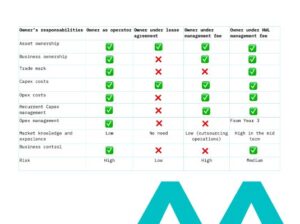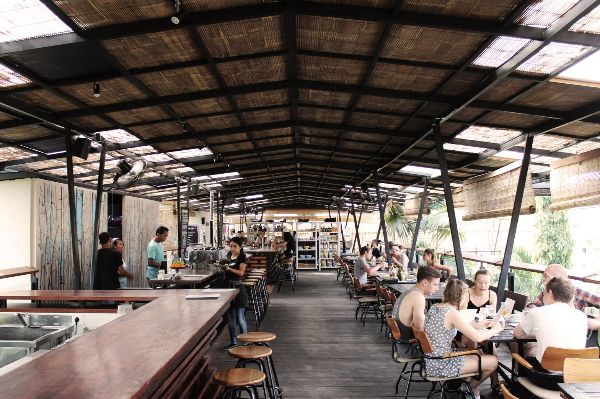Making the crucial shift from landlord to operator
Coworking and coliving business models have revolutionized how we work and live because they adapt perfectly to the new needs of demand by offering flexibility and access to a community.
Throughout the last decade, office asset owners have witnessed that the flexibilization of the workplace has changed the way in which people work. As the coworking sector has become more competitive, operators have improved their offers by providing a full-service pack not just to work but to live as well. The same is currently happening with residential assets in the coliving sector, which is starting to grow in a similar way that coworking has.
Those who operate this type of business want to be close and have a direct relationship with the final user. For this reason, the value chain is becoming shorter and shorter: we find property owners that have become operators (Colonial or Merlin) or operators that only operate their own properties (The Student Hotel).
In both sectors, if you are a mere rent collector, have no strategy or generate no value, you are out of business. And to generate value, you need to know the end user well. Whether you own a property or want to go into business, at HWL we have found a formula that teaches you how to run the business with 100% ownership.
Agreements between the landlord and the operator
Coworkings and colivings can be classified according to their management model. In other words, according to the contractual relationship between the owner and operator:
Owner as operator:
- The owner also operates de coworking/coliving business.
- Has 100% control of the business and processes as well as profits and losses.
- Assumes the entire investment.
- Need for a deep knowledge of the coworking/coliving business. If you do not know the sector, the risk is quite high.
Lease agreement:
- The owner leases the asset to a third party.
- The rent can be fixed or variable (with a guaranteed minimum rent).
- The owner has no control over the business and only deals with the real estate business.
- In the case of renting with variable income, the owner participates indirectly in the good performance of the business.
- The FF&E (Furniture, Fixtures & Equipment) and OS&E (Operating Supplies & Equipment) investment is assumed by the tenant.
Management fee agreement:
- The owner hires an operator with extensive knowledge of the industry to manage the coworking/coliving operations.
- The hired operator receives a management fee as compensation.
- The entire business (asset + coworking/coliving operations) belongs to the owner.
- The owner has no control over the business.
- The entire construction investment is made by the owner.
- The risk is assumed by the owner.
HWL management agreement:
- The owner hires HWL as a consultant with extensive knowledge and experience in the sector to develop the entire project and manage the coliving/coworking operations under the owner’s brand.
- HWL transfers the know-how to the owner: in the third or fifth year, the owner starts to manage the business with a trained and experimented team as well as being handed the Operations Manual of the business.
- HWL receives a management fee as compensation.
- The entire business (asset + coworking/coliving operations) belongs to the owner.
- The owner has control of the business from the third year.
- The entire construction investment is made by the owner.
- The risk is assumed by the owner.
The following table summarizes the main responsibilities of the owner and compares them according to the management model:

If you are an owner who wants to operate under your own brand and control your business 100% by minimizing risks, contact us. We offer integral service for developing your coworking or coliving project from conceptualization to business implementation until the 3rd or 5th year. We operate the space for you until you learn to manage it, and we share with you all the know-how so that you continue to be a successful operator.
Featured image: Roam coliving.
